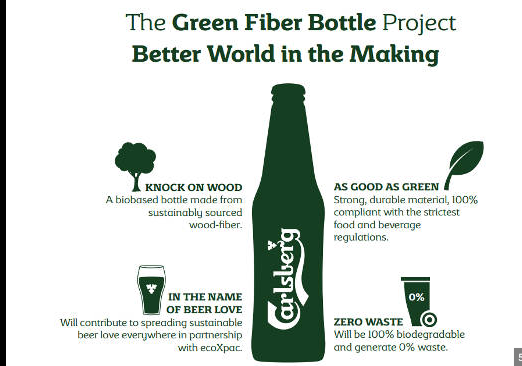- This paper describes:
> the case of how the Danish beer manufacturer Carlsberg developed the Green Fiber Bottle as part of its sustainability program through an open innovation approach;
> how a grand challenge associated with sustainability can be effectively addressed through open innovation. - When Carlsberg audited its environmental footprint as a brewery, they found that approximately 40% of their footprint came from packaging. Yet Carlsberg did not want to get into the packaging business itself so it needed to find complementary partners to be able to leverage this potential.
- The case of the Green Fiber Bottle shows how open innovation can be successfully integrated into an existing organization’s business model to deliver impactful solutions while respecting the organizational constraints.
- The researchers’ conclusions appear to consolidate prior research in this area: “The case serves as one of the first formal documentations of how open innovation can effectively drive innovation activities to address a stated sustainability objective.
- The co-mingling of sustainability and open innovation has the potential to become a domain in its own right that the researchers call “Sustainable Open Innovation”.
- F&B companies may face particular challenges to develop new innovation strategies and business models that combine economic considerations with environmental goals (Bogers & Jensen, 2017; Cantino et al, 2019; Franceschelli et al, 2018).
- The food and beverage (F&B) industry is a particular industry that is linked to many of these issues, in terms of both the challenges that we face and the solutions that need to be developed. While a grand challenge can be described as “specific critical barrier(s) that, if removed, would help solve an important societal problem with a high likelihood of global impact through widespread implementation” (George et al, 2016: 1881), the traditional and complex nature of some parts of the F&B industry does not always make it easy to address the relevant grand challenges.
- Sustainability challenges represented by the Sustainable Development Goals (SDGs) are a critical test for the world.
- In advanced economies it appears there is a lack of political will to tackle the SDGs with public funds. Therefore, any successful initiatives that positively address the SDGs will require public-private cooperation, and significant collaboration within industry as well.
The paper can be downloaded from the following link:



